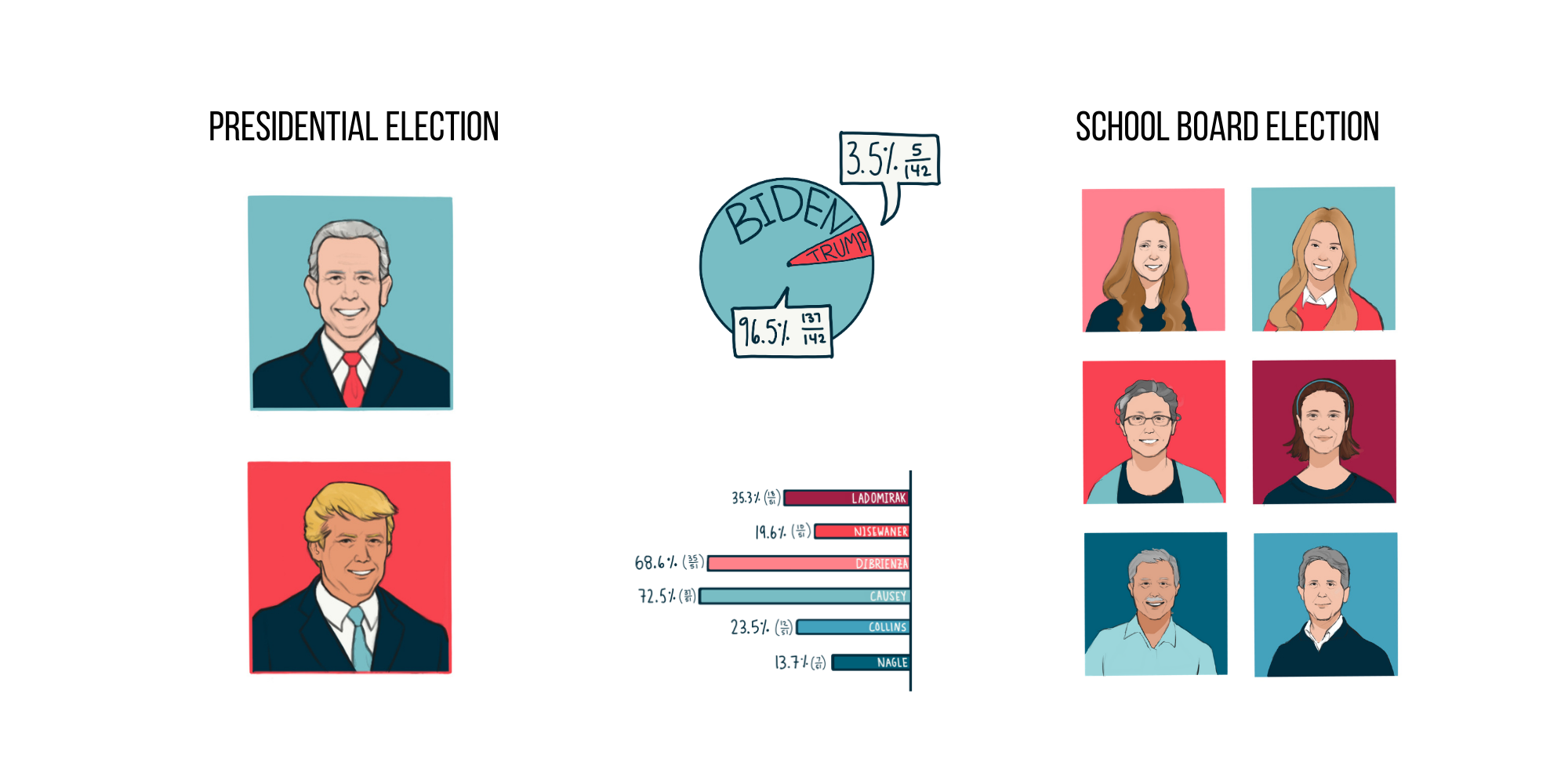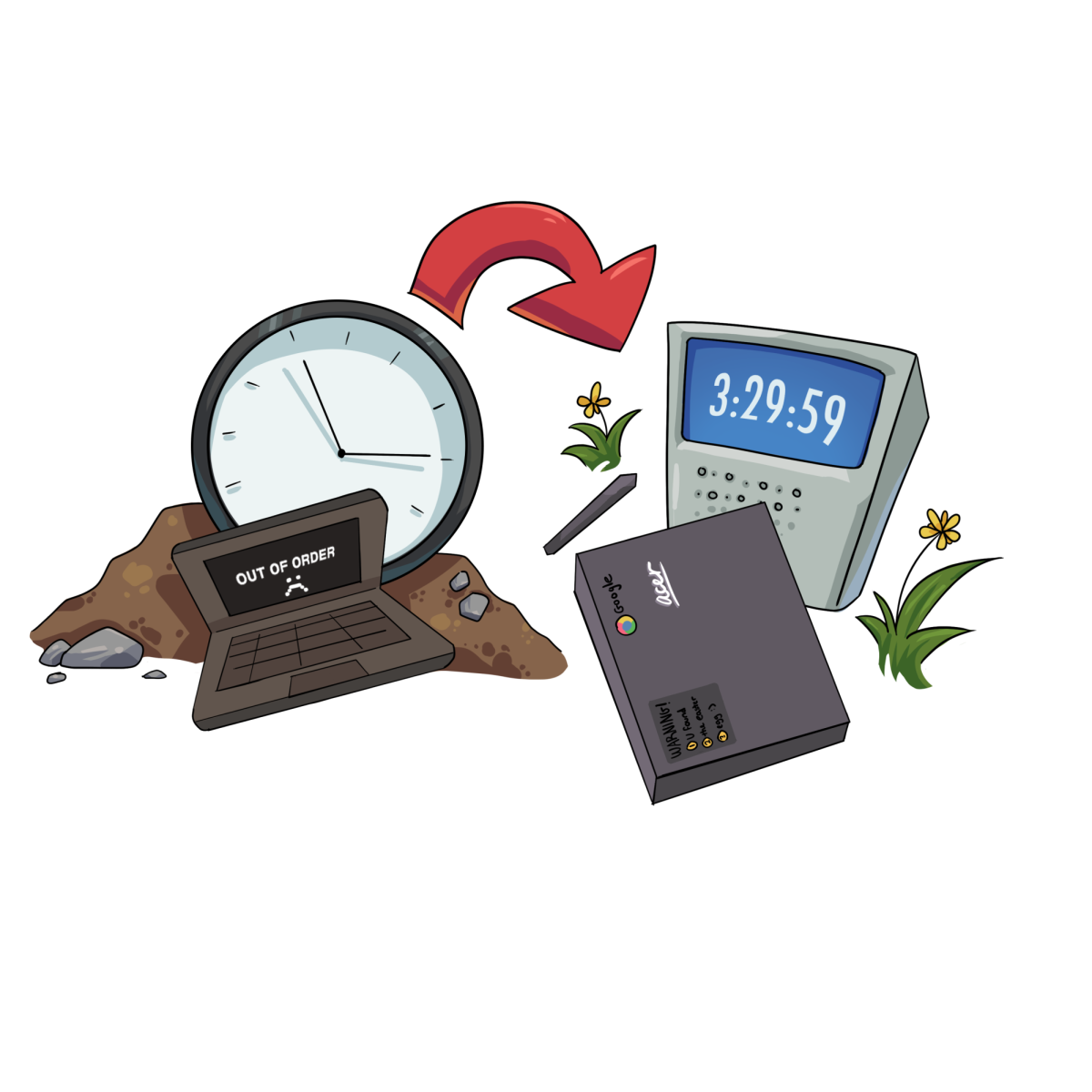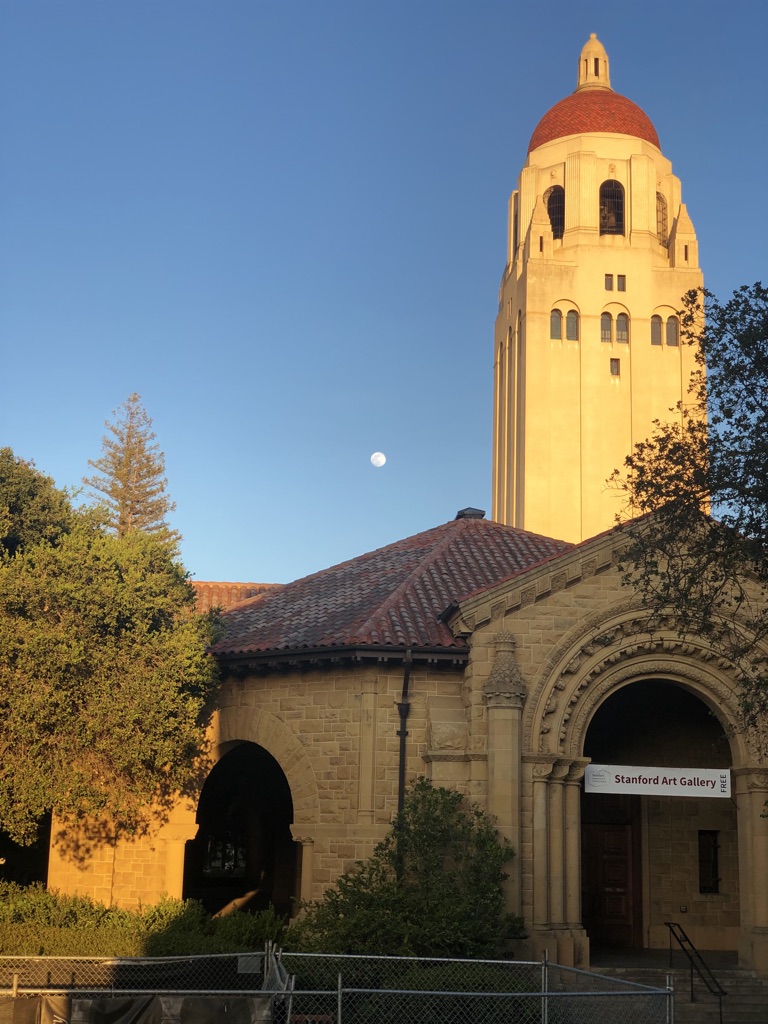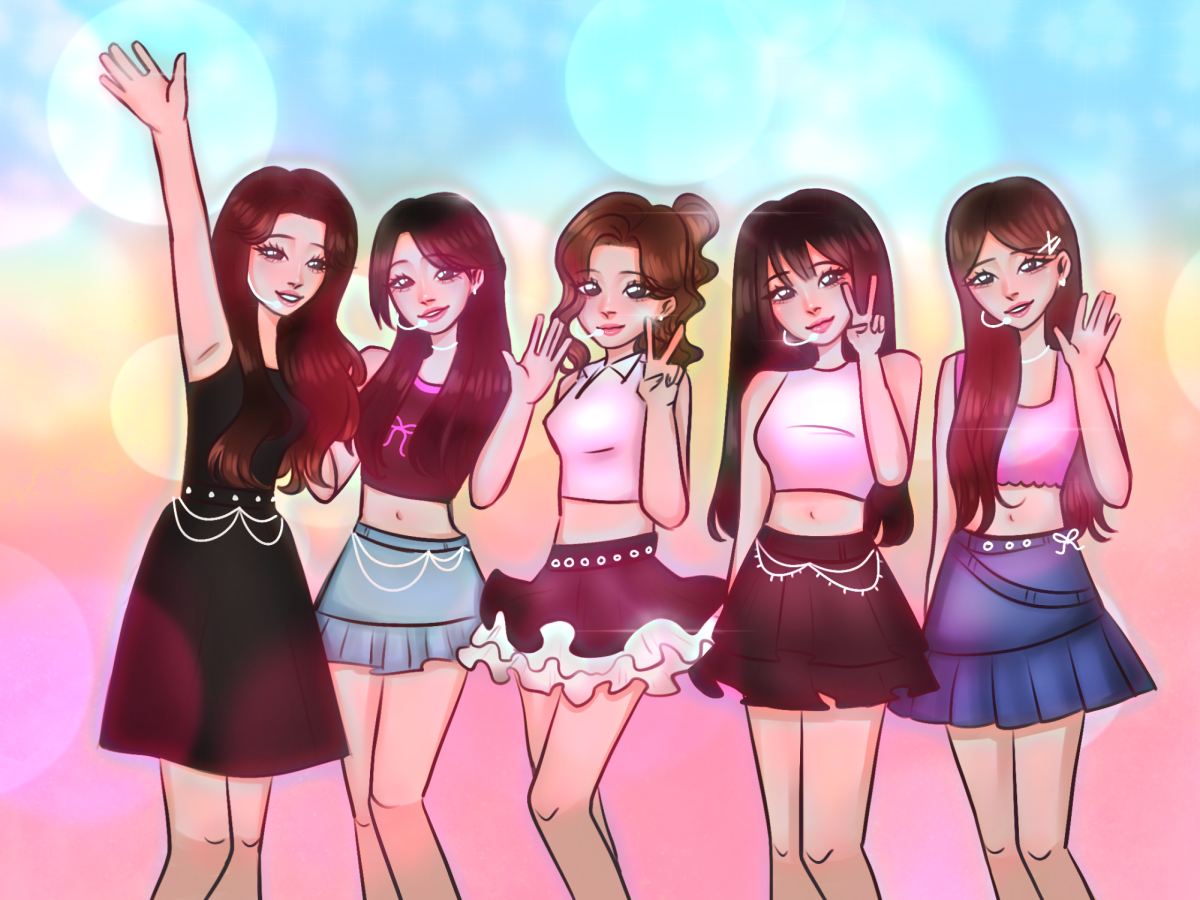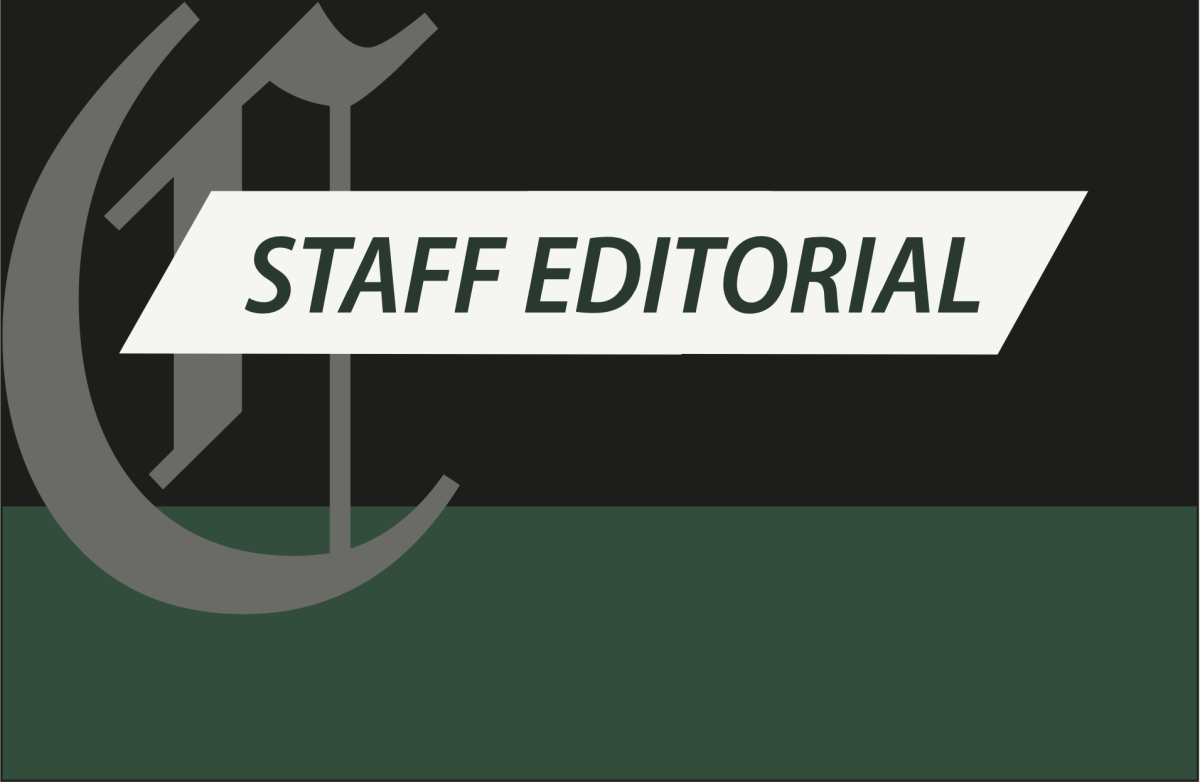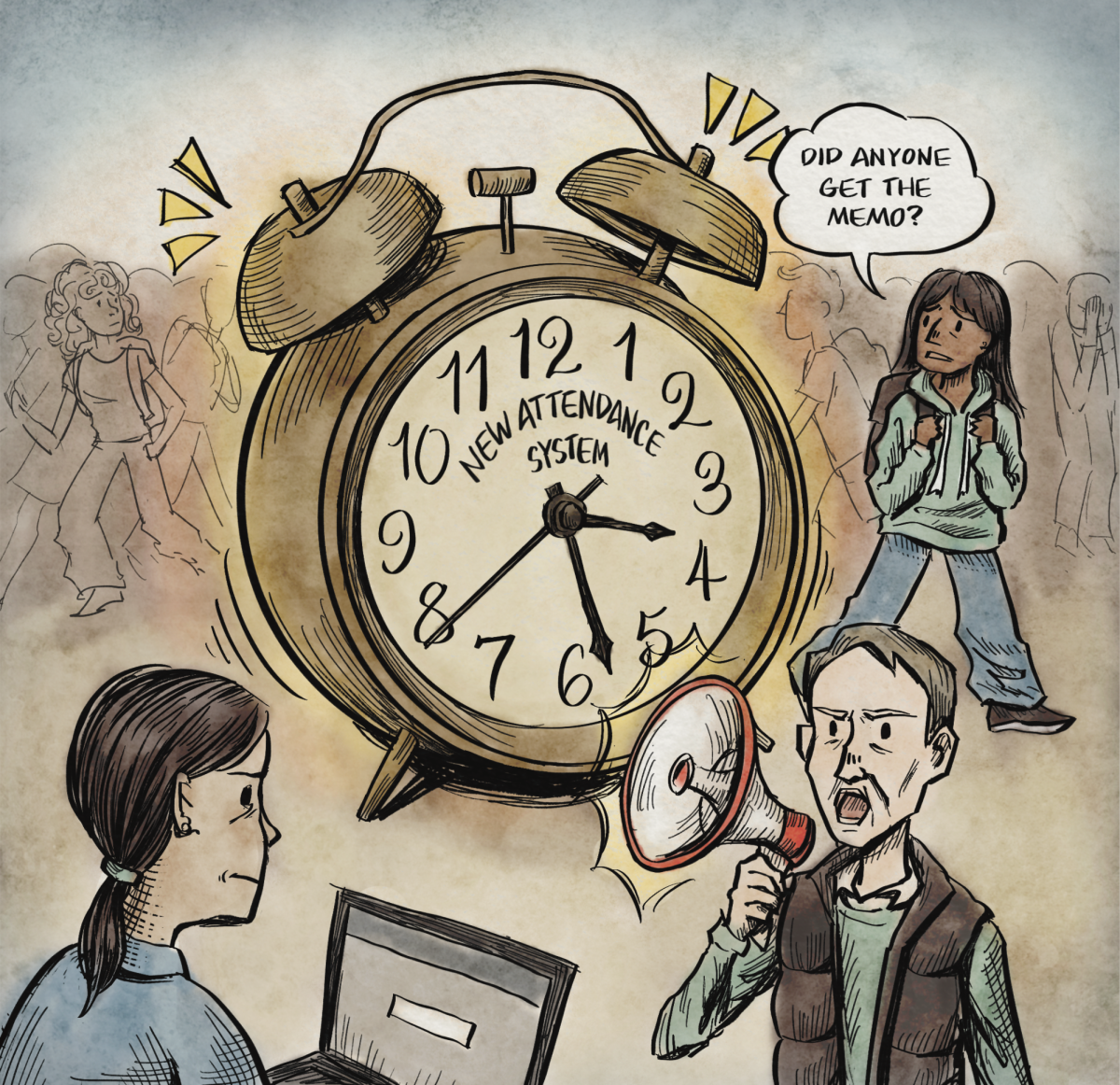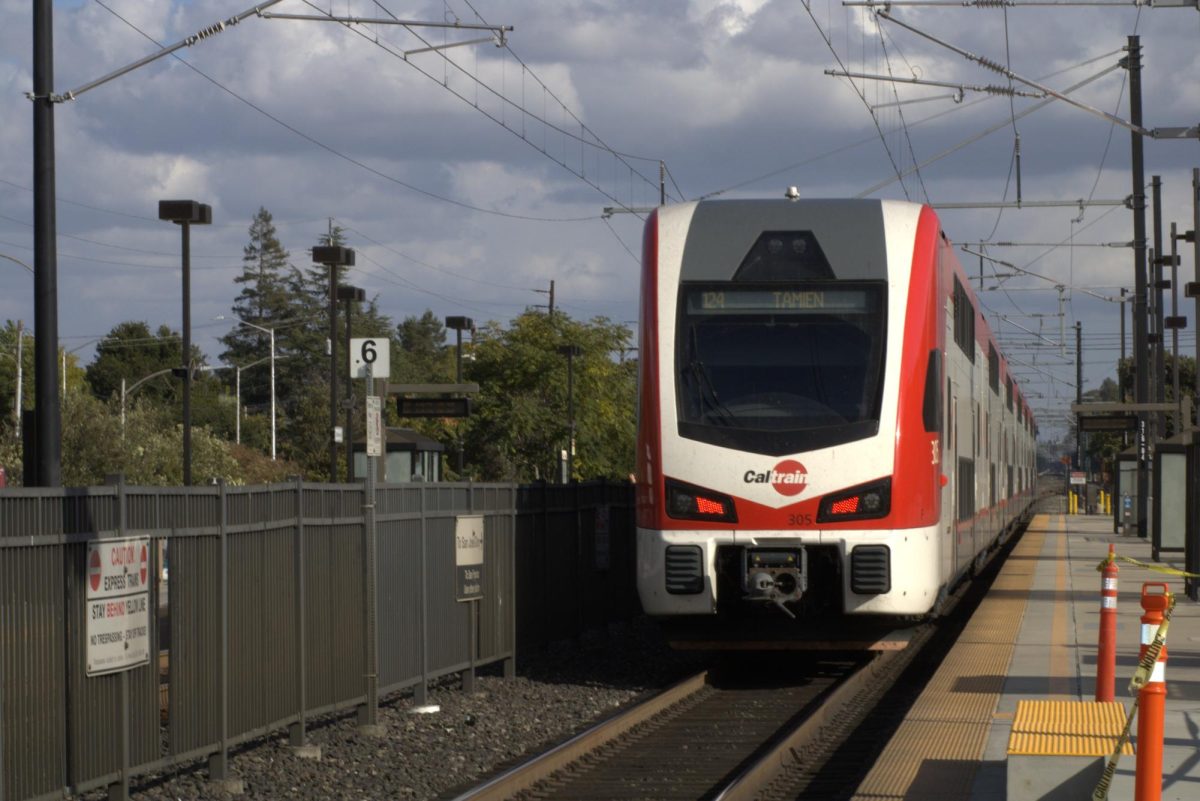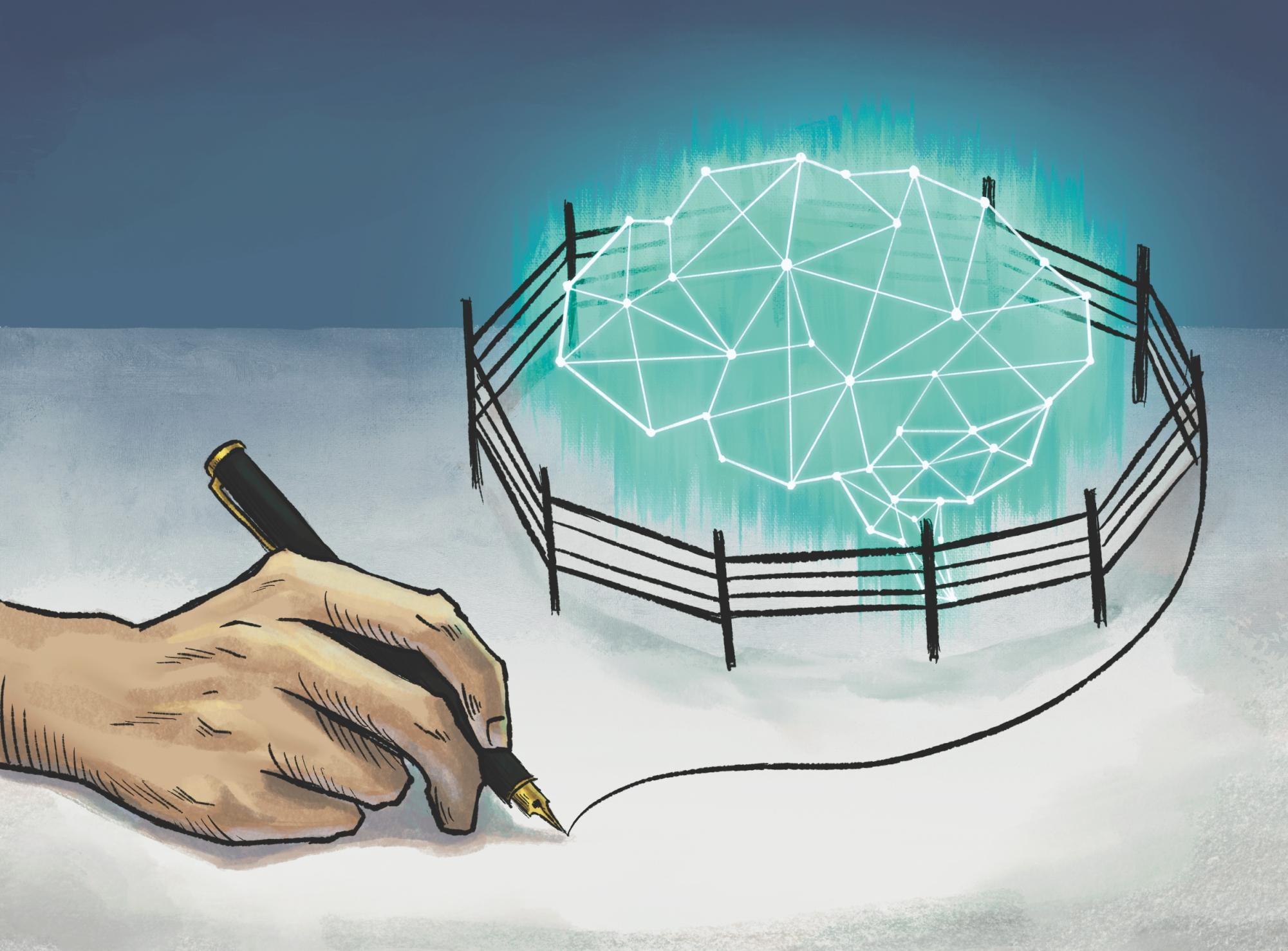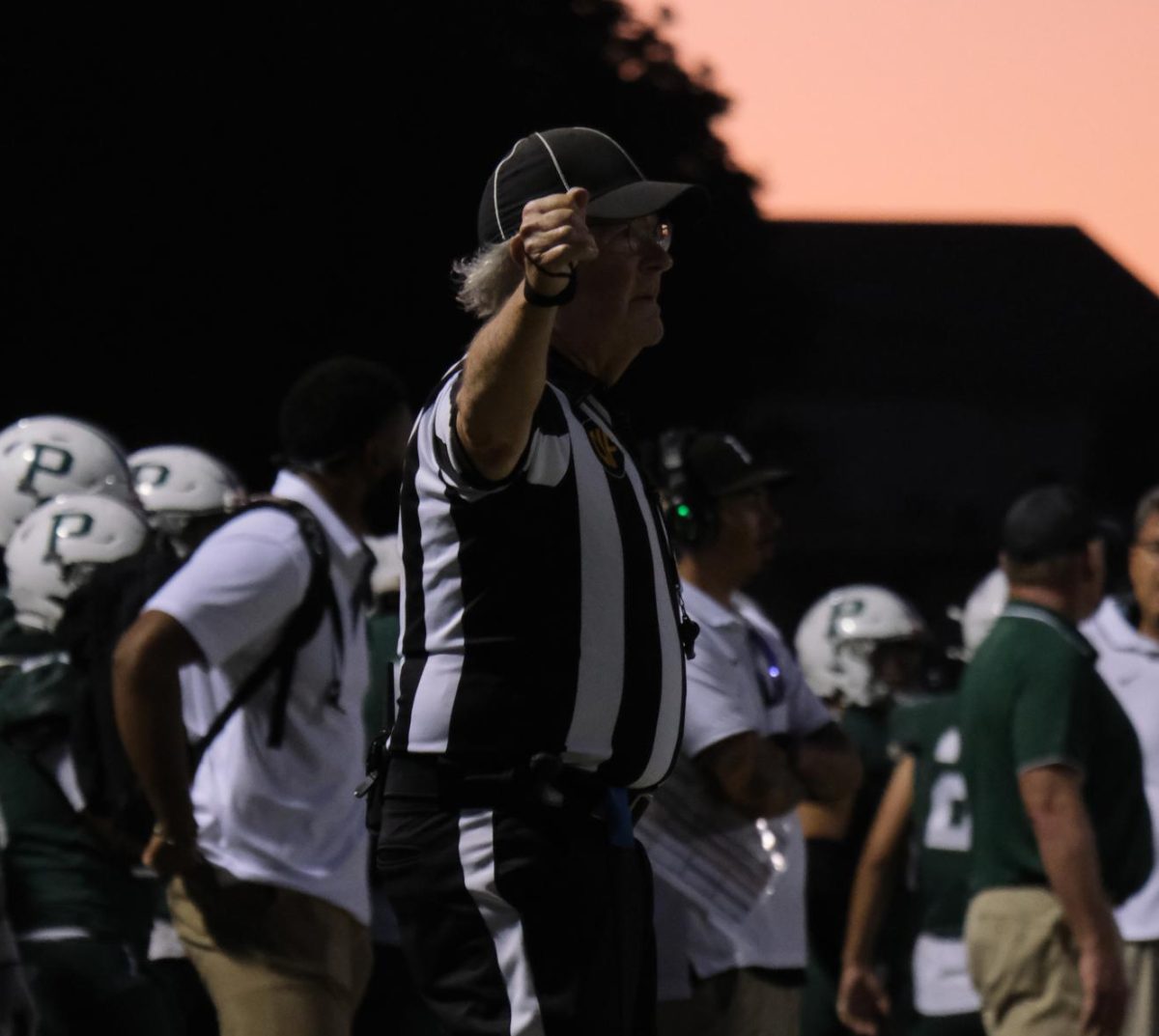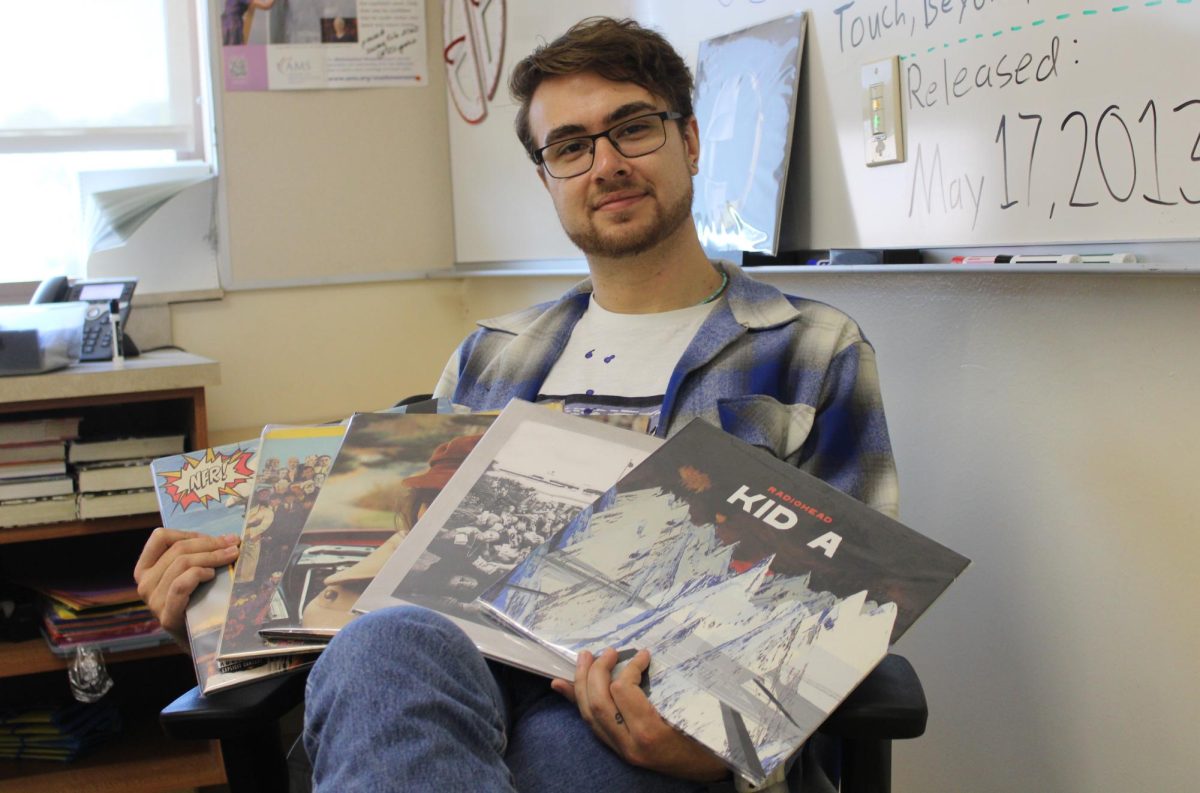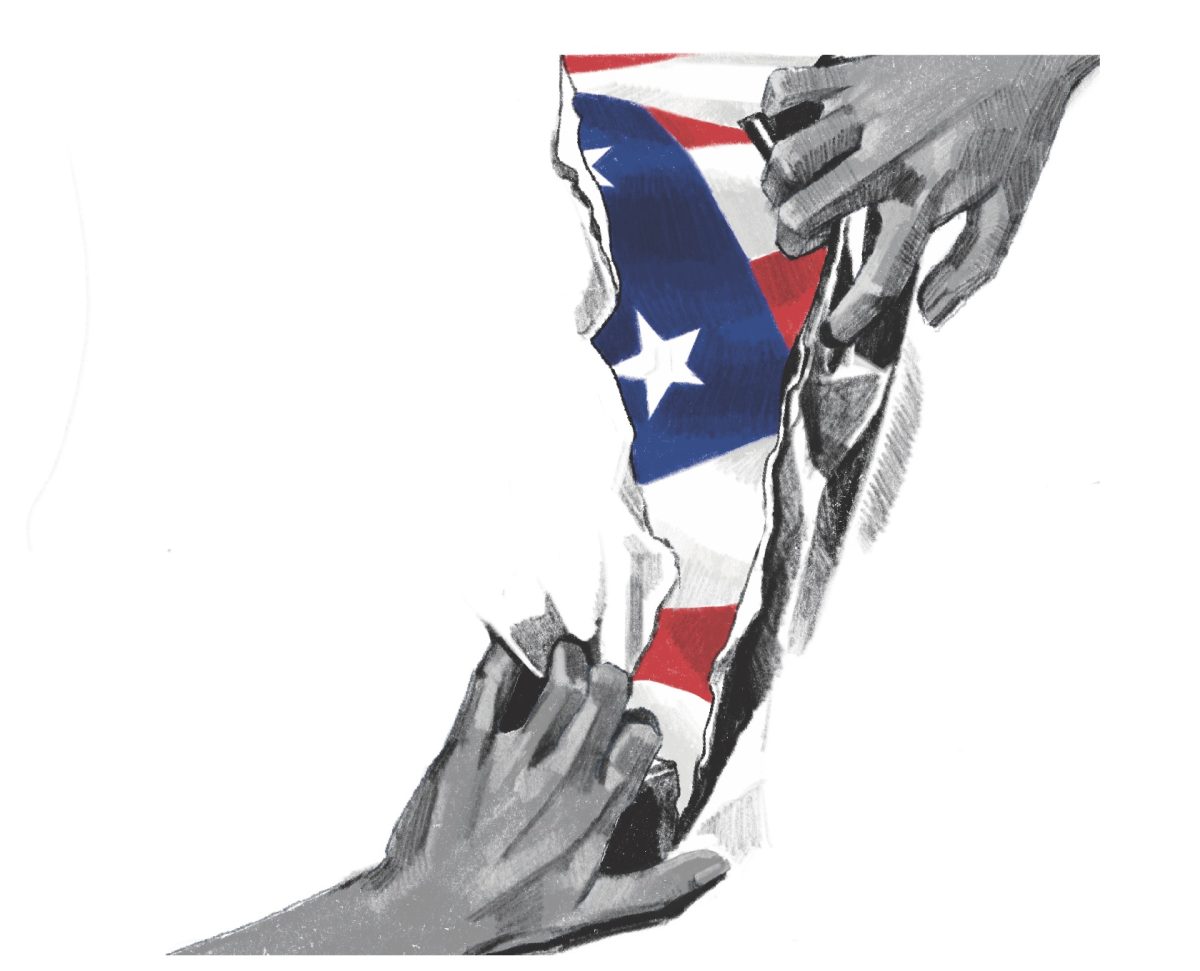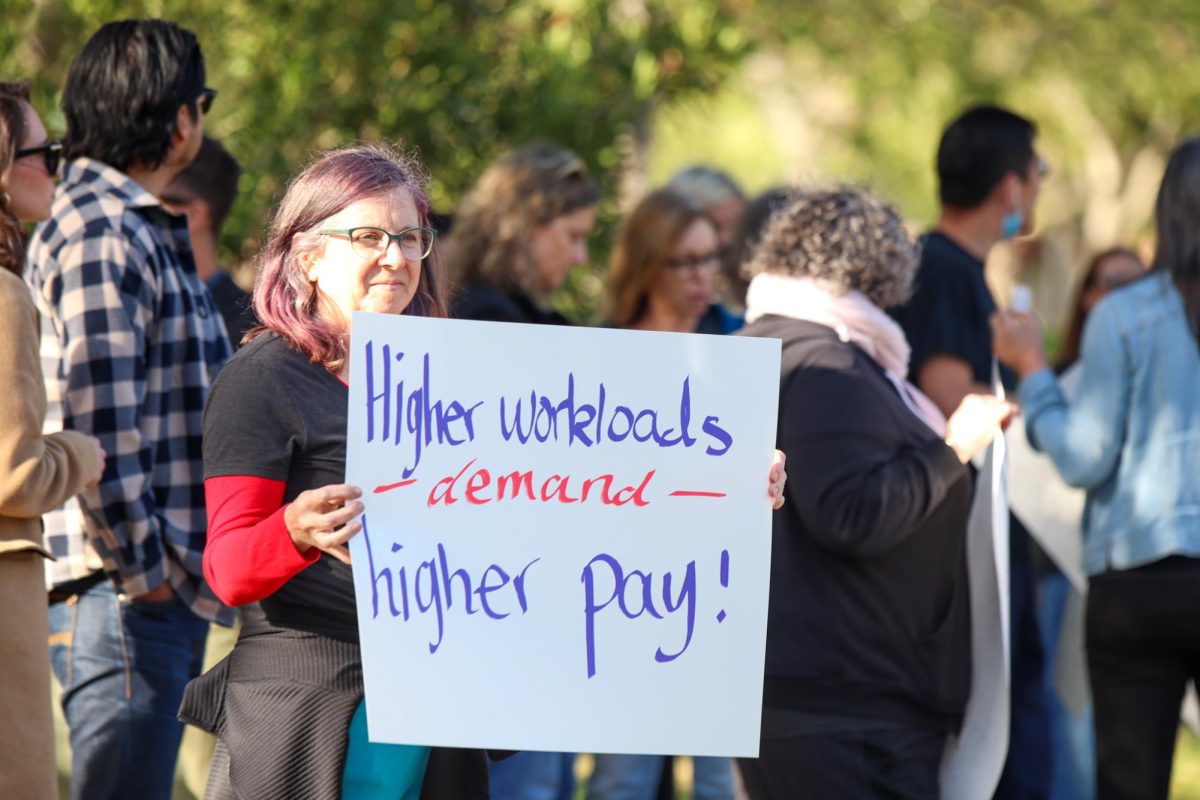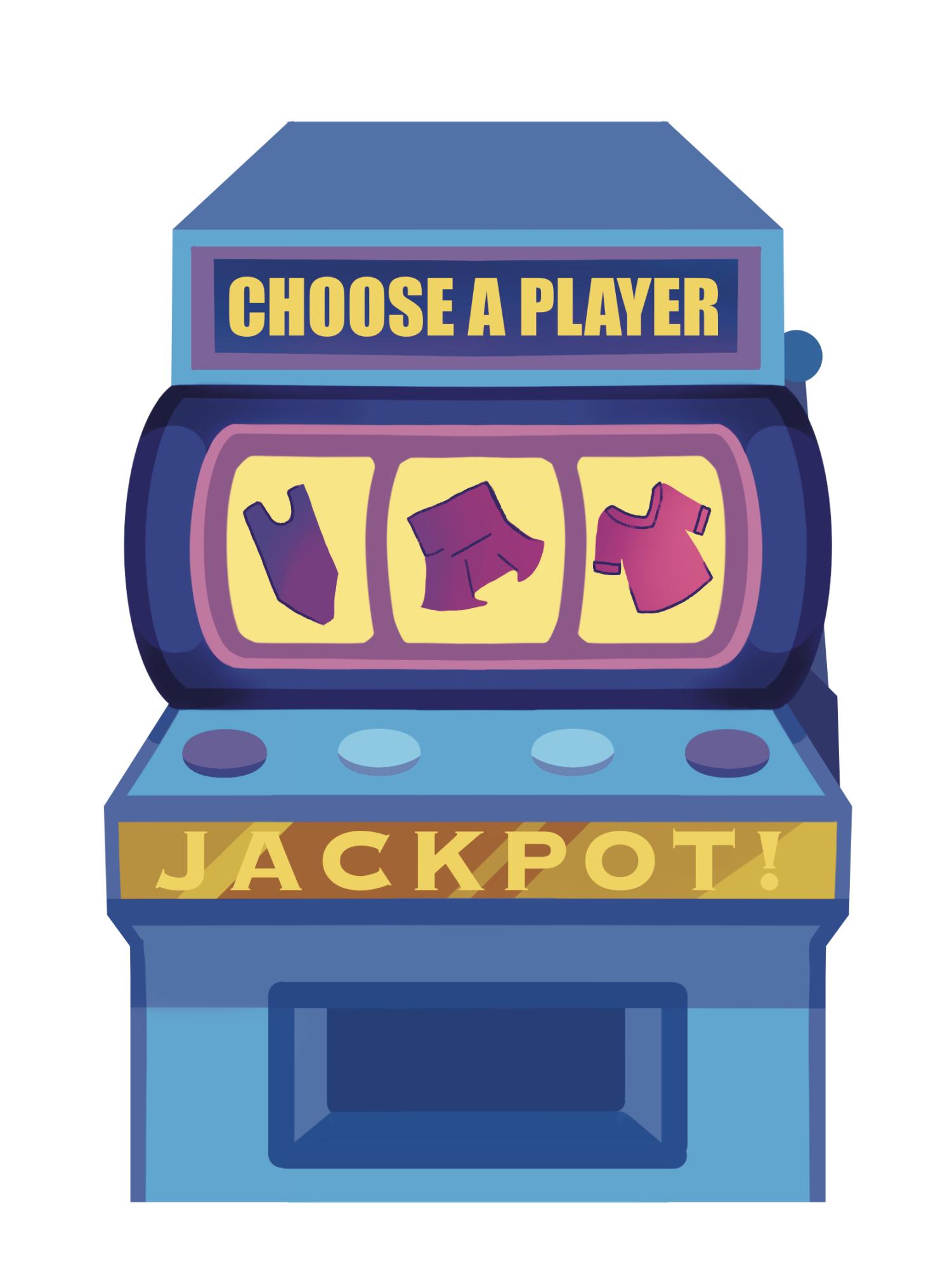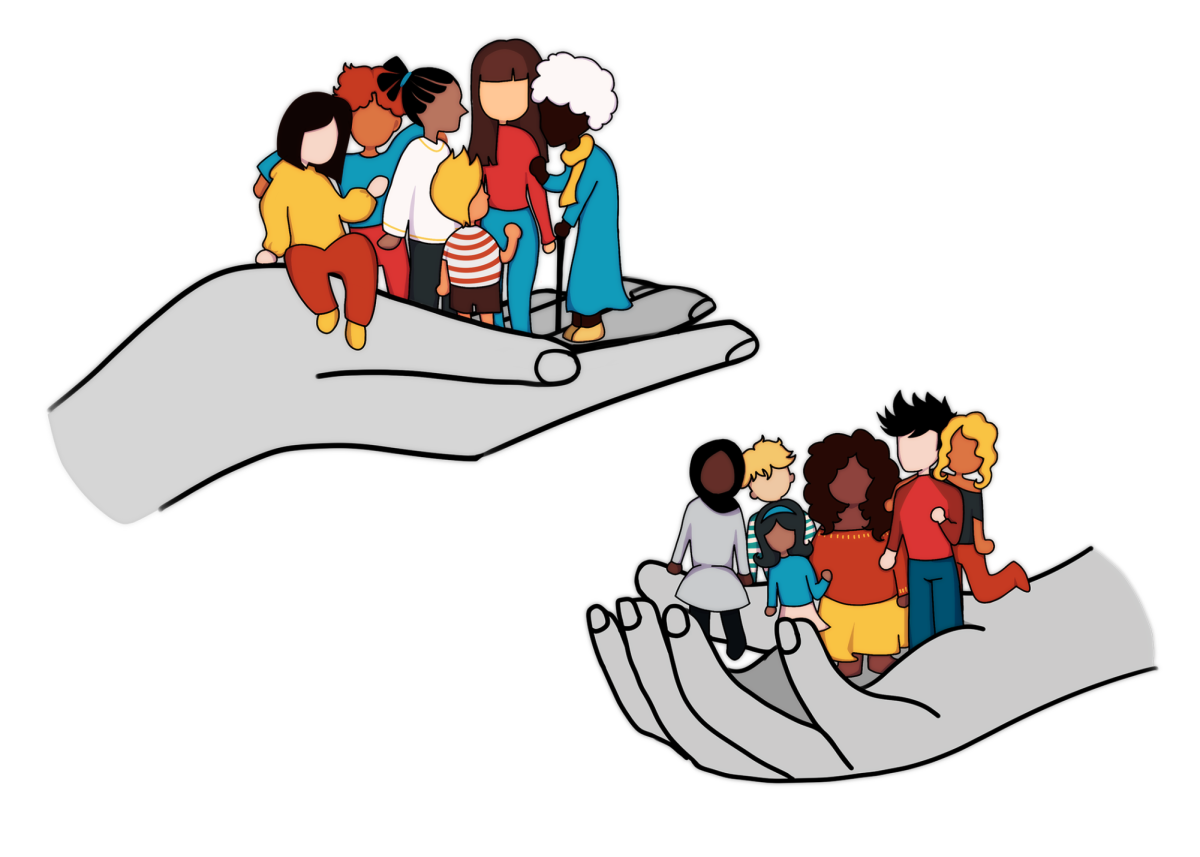The year 2020 has been historic, marked by unexpected twists and turns including wildfires, disease, economic disasters and racial injustices. These events have transformed the political landscape, bringing new issues to the table and forcing voters to reexamine existing ones. With less than a week remaining before the upcoming presidential and school board elections, The Campanile investigates politics at Paly.
[divider]The Presidential Election[/divider]
Racial Equity & Justice
Motivated by the deaths of Black people at the hands of the police, the world exploded in fury and unrest in late May and June this summer. Breonna Taylor and George Floyd, just two of the Black people killed by white police officers, are now household names. Despite the protest for their justice, none of the policemen involved in their deaths are in jail –– some still have their jobs.
Unsatisfied, many Paly students marched through the streets of downtown Palo Alto. And while the protests have died down, students are still calling for justice and racial equity.
Junior Sebastian Bonnard said because his mother is Black, racial discrimination and racial equality are personal to him.
“What a lot of people don’t understand is that we have to think about it all the time, and it’s a burden to us,” Bonnard said. “I guess I have white privilege because I don’t really look Black, but my other family members have to carry this stuff. It’s just really disheartening to see almost weekly, or even daily, that another Black person got shot by the police.”
Bonnard said he supports the movement for defunding police departments and reallocating some of the money to other areas instead of abolishing the police force entirely.
“When you really think about it, the police are funded way more than a lot of really important institutions in our country, like schools,” Bonnard said. “We also need to be reallocating money to social workers because in a lot of these cases where police are involved, they don’t need to be. Sometimes, someone might have a mental breakdown or there’s family dispute issues that could be solved by a social worker instead.”
While there is plenty of debate about how to handle the police force and their power, some also oppose the Black Lives Matter movement and are instead in support of All Lives Matter, a countermovement frequently used to resist BLM. Senior Teg Singh said he thinks that the Black Lives Matter movement is not political; it’s about basic human rights.
“People shouldn’t be politicizing an issue dealing with just human lives,” Singh said. “No matter the color of people’s skin or what their beliefs are, no one should be killed in cold blood like that or treated badly like that or shot just for doing nothing. So I think that that has absolutely no place in our country, and I think that we need to act on that immediately.”
Bonnard said he thinks racial injustices go far beyond matters concerning the police, and are deeply rooted in the country’s judicial system.
“The justice system was really built to keep us oppressed and to keep us in jail, and I think it needs a lot of change,” Bonnard said. “One area being the bail bonds system, which I think is ridiculous. It basically puts a price on your freedom and it needs to be eradicated completely.”
Climate Change
Since the last presidential election in 2016, the topic of climate change has developed into one of the most pressing issues facing the world for many, while others disagree that it poses a threat or that there is even scientific evidence to explain it. Seventy-eight percent of the 145 students surveyed by The Campanile said climate change is one of their most important issues in the presidential election.
Freshman Athya Paramesh said she has always been passionate about the environment, and that elected officials ought to take the steps necessary to ensure its wellbeing.
“As much as I value human life and humans, I also value all life on earth and the biodiversity we have, and I think it’s something people don’t have enough appreciation for,” Paramesh said. “Humans are so often blinded by money or wealth or themselves to think of themselves as part of nature and part of the environment. The first step (to solving) climate change is to get people to realize that they are a part of the system and humans are just another string in the web of life.”
Paramesh said there are many steps people can take to help the health of the planet, but not enough people are implementing those solutions in their daily lives.
“It’s the fact that there are things that can be done and people aren’t doing anything that is probably why climate change is such a big issue,” Paramesh said. “We only have a certain window where we can actually restore the health of the planet to a better state than it is right now, and if we keep continuing (on this path), it’ll only get worse.”
Abortion & Women’s Rights
On October 26, Trump’s Supreme Court nominee, Amy Coney Barrett, was sworn in as the newest Justice to replace late Ruth Bader Ginsburg. Barrett is opposed to abortion, whereas the late RBG was known for supporting abortion rights and upholding Roe v. Wade. As protests and ongoing online discourse may indicate, tension regarding the issues of abortion and women’s rights have only escalated since 2016.
Senior Jenna Tetzlaff said she is strongly pro-choice and opposes any restrictions on abortion.
“I have gotten into so many debates over whether someone is pro-choice or pro-life,” Tetzlaff said. “I just find it so hard to believe that a woman is against abortion, which sounds kind of selfish I guess, but I don’t understand it.”
Junior Cole Sturino said he thinks it is important to establish legislation in support of abortion and women’s rights with no loopholes that allow states to exempt themselves from following them.
“The moment that you give any sort of leeway on it, then states start trying to figure out what way they can try and revoke those rights,” Sturino said. “It’s kind of insane that we have this sort of system that can just tell people what they can or can’t do with their bodies.”
Senior Jackson Bundy, who identifies as a conservative Christian, said his religious beliefs dictate where he stands politically, including on the issue of abortion.
“I would say I’m pro-life, because in my eyes, I just don’t see (abortion) as morally right,” Bundy said. “But it’s also something that I don’t care enough about to say to someone, ‘You can’t get an abortion.’ If you want to have one, that’s your decision, and it’s something you’re going to have to live with for the rest of your life.”
Like Bundy, sophomore Kyle Lee also said that he is opposed to abortion in most cases.
“I can see (that if pregnancy) is fatal to the mother or if it is fatal to the baby, it should be aborted,” Lee said. “(But) conceptually, in all science facts, in fact, life starts at conception … I’m not saying no woman can have a choice. I’m saying that we shouldn’t kill the baby. I think we should try to have a different way, like adoption, foster care and other options.”
Managing the Pandemic
In January, as the country entered an election year, voters and candidates had no idea how much the nation’s concerns would change.
Many Americans lost family members, jobs and even their livelihood because of the novel coronavirus. And some blame President Trump for his controversial COVID-19 response.
Bonnard said because of the high levels of COVID-19 cases in the U.S., he is in favor of making masks mandatory to reduce infection rates.
“I understand that some people don’t want to be told what to do and that masks can be annoying to wear, but it’s really all in our best interest –– you just have to listen to science and the doctors,” Bonnard said. “A lot of scientists have said that in three months, if we all wore masks we could really reduce the infection rate and the number of mortalities.”
President Trump’s handling of the pandemic has received criticism as over 200,000 American have died from the disease. While Bundy said Trump has not done a great job handling the pandemic, he said the president doesn’t deserve all of the criticism he has received.
“The way he had set it up is he left it to the governors of each state to more or less lay down the rules and restrictions,” Bundy said. “I also think that part of the blame can be on the people of the United States. I know several people who, when the strict shelter-in-place was going on, didn’t follow any of the rules … but at the same time blame the people who made the rules for the scale of the pandemic.”
Health Care
While health care is always a topic up for debate in election years, the pandemic has put it under even more scrutiny than in years past, pushing voters to take a closer look at its affordability, accessibility and quality.
Bonnard said the issue of health care is important to him in this election because of the country’s high unemployment rate and demand for COVID-19 treatment.
“Especially during the pandemic, it’s really important that everyone has access to health care,” Bonnard said. “Because health care is so expensive right now and private businesses have more or less monopolized the industry, I think it’s imperative for the government to set up a way for people who can’t afford health care to get equitable and fair treatment like everyone else.”
Bonnard said that the benefits of universal health care would lift a large burden off smaller businesses who would otherwise have to pay for their employees’ health insurance.
“In a business sense, this would stimulate the economy because it’s one less thing for smaller companies to worry about,” Bonnard said.
But Bundy said he doesn’t see health care as something that should be universal.
“I think it’s something that people should pay for, unless someone is barely making any money, in which case I think they should receive assistance,” Bundy said.
He said countries like Canada have free health care but pay the price in terms of quality.
“In Canada, the wait times are absurdly long compared to those in the United States, and the health care you receive isn’t nearly as good as the kind we have here,” Bundy said. “It’s also not technically free –– I think the average Norway citizen pays double the amount of taxes than someone living in the U.S.”
[divider]The School Board Election[/divider]
Student Mental Health
For many students, Paly has a competitive, toxic culture. Because of this, junior Mathew Signorello-Katz said it’s important for the board of education to have a plan to expand access to mental health resources on campus, examine the overall culture of the school and find steps to reduce competitiveness among students.
“I don’t think the board does a very good job when it comes to reaching out to students and determining what their sentiments are,” Signorello-Katz said. “They do have the open sessions where students and parents come in, but I really don’t think that that’s enough. So I think that the board forming some sort of oversight committee and reaching out to our students themselves would be a beneficial first step in the course of action.”
Senior Owen Longstreth also said distance learning and spending all day on Zoom, combined with the need to do his homework, extracurricular activities and college applications, has made this time period difficult for his mental health, and that of other students, as well.
“A lot of (problems) are out of the district’s control, but I just feel like they should make some structural changes here,” Longstreth said. “I support the Wellness Center. I support all the guidance stuff, but there’s a systemic reason why everyone is always really stressed and not getting enough sleep.”
Reopening Schools
In a unanimous vote, Palo Alto Unified School District board members approved a school reopening plan, which allowed for transitional kindergartners, kindergartners and first-graders to return to school on Oct. 12, with the rest of elementary school students coming back two grades at a time every two weeks. The board plan also has all secondary students coming back to school in January, sparking debate among parents, teachers and school officials about the safety of this decision.
Freshman Anna Van Riesen said students should not go back to school until it is safe for everyone to do so. She said going back would be unfair to the kids who need to stay home, because they would be subject to fewer social interactions and receive a different quality of education.
“You shouldn’t have to choose between getting a better education and possibly the life of your family member, which is why I think that we should not go back to school until it’s absolutely safe,” Van Riesen said.
Bonnard, however, said he is ready to go back to school because he dislikes online learning.
“I’m for reopening schools because I think that learning in a Zoom environment is almost impossible,” Bonnard said.
Freshman Alaap Nair said he is hesitant about school reopening because of his concerns regarding the risk of a spike in COVID-19 cases in Palo Alto.
“If the school doesn’t prioritize the health and the safety of all the students and the staff, then we don’t really have a chance of reopening,” Nair said.
Educational Equity for Low Income & Minority Students
The past seven months of online learning have raised concerns in the community about equal access to educational opportunities and resources.
“From what I’ve seen, there is an incredibly large equity gap in regards to various groups of students,” Signorello-Katz said. “That’s something that I think the school board also needs to work on. It’s something that has been a problem at PAUSD for a while.”
Singh said it’s important for Paly to give enough resources to low income students for them to get an education comparable to other students.
“I think that an education is one of the most important things in the world, and it shouldn’t be kept from anyone on the basis of their family income,” Singh said. “Education can make a world of difference for some people. And I think that no one should not have access to it.”
Sophomore Evie Barclay said her family friend has had trouble using district-provided resources because of online learning.
“My friend told me she wanted to utilize these resources, but the difficulties and obstacles she’s having to come across make it not easily accessible,” Barclay said. “There’s room for miscommunication and confusion, and I definitely believe that there needs to be improvements made in this area.”
Barclay said this miscommunication often stems from students whose native language is something other than English.
Barclay said, “Communicating with teachers is really important to understand the material and concepts and ask when deadlines are — it’s a crucial part of going to school and having a relationship with your teacher, and this can be hard when there’s a language barrier.”
Student Representation & Communication
Ninety-three of the 145 surveyed students said student voice is one of their top five concerns in the upcoming school board election, and 55 said they think the student body is underrepresented when board members make decisions.
Bonnard said even in areas where the board attempts to represent student voices, student opinions are still not taken into account and are mostly symbolic.
As an example, he said both Paly and Gunn only have only one student representative on the board and that these two student representatives only get to vote preferentially.
“More students need to be in positions that can affect change in every department, from athletics to reopening schools to managing classrooms,” Bonnard said.
Additionally, 66 out of the 145 surveyed students said communication between the school board and PAUSD families was one of their top issues when considering candidates for the upcoming election.
Signorello-Katz said the pandemic has made the flaws in communication more apparent, saying he only found out that school would be transitioning to remote learning from a Palo Alto Online article.
“I think that having school board members that prioritize the transparency of information is an incredibly beneficial thing, especially that we’re in the pandemic right now,” Signorello-Katz said. “It’s important in any situation, but now more than ever.”
[divider]Student Voters[/divider]
While a small portion of the student body will be of voting age in time for the election, senior Jenna Tetzlaff and senior Lexi Gwyn are both eligible and said they plan to vote for Joe Biden.
“I just really don’t like Trump,” Tetzlaff said. “I disagree with a lot of the things he’s said and what he values is just not what I value. The past four years have also not been great for women because of his presidency.”
Gwyn said while Biden was not her first choice — she supported Elizabeth Warren in the primaries — her views don’t align with the Settle For Biden campaign.
“The word ‘settle’ has so many negative connotations,” Gwyn said. “While Joe Biden is an old white dude, I do think he represents the American population. He has many stories of loss, a family with some addiction problems, and he has a stutter — all of these connections to the hardships of the American people — and I think that he puts them into his plan for presidency.”
Though she is not yet eligible to vote, sophomore Ajin Jeong said young people should stay informed on all the candidates and their policies.
“If you’re voting for a candidate that can last for a couple of years, and it’s not affecting just you — it’s affecting other people around you as well, I think it’s really important that we know enough about the candidate before we decide,” Jeong said.
Gwyn and Tetzlaff also said they plan to vote in the school board election, although they haven’t decided on who to vote for yet. One way Gwyn has kept up with local issues is by responding to outreach text messages from candidates to learn more about their campaign.
“One asked me what I wanted to see from the school board, so I texted back and said, ‘Here are some things I’d like to see addressed by the school board,’” Gwyn said. “Then they texted back, saying, ‘This candidate is actually doing X, Y and Z to address the issue you spoke about.’”
For new voters, the process can seem daunting, but Tetzlaff and Gwyn said maneuvering through the hoops is less challenging with the help of more experienced family members.
“I already pre-registered last year in history class and made sure to check my registration again this year,” Gwyn said. “But I’m pretty grateful that I have parents who are pretty educated on all this and can help me through the process of filling out my first ballot.”
For Tetzlaff, voting is a no-brainer — she attributes Trump’s win in 2016 to Democrats who chose not to vote because they disliked Hillary Clinton and her campaign.
“In the last election, I was so shocked,” Tetzlaff said. “I was like, ‘Wait, I thought everyone was voting for Hillary,’ but Trump won. I didn’t (expect) a big majority of people to not vote at all. That was really saddening to me, and I was really disappointed. You kind of decide your future when you vote or not. You have a voice, and you might as well use it.”

